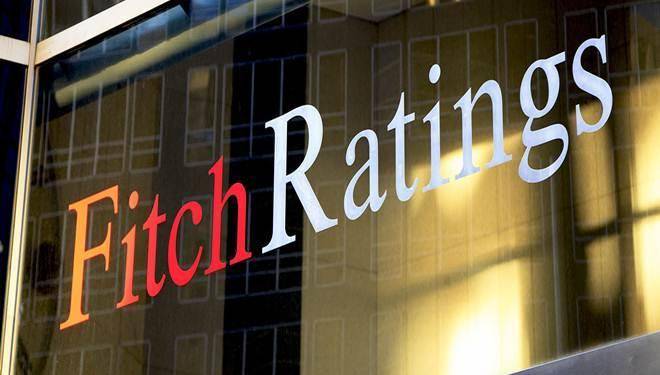Despite Ghana’s significant strides in restructuring much of its debt, Fitch Ratings warns that the country will face severe liquidity pressures in 2025 and 2026. The UK-based credit rating agency highlights Ghana’s ongoing struggle with high-interest payments relative to revenue, a situation that places it among the most burdened sovereigns globally.
According to Thomas Garreau, Associate Director of Sovereign Ratings for Europe, the Middle East, and Africa at Fitch, Ghana’s fiscal challenges remain daunting despite recent consolidation efforts. Garreau pointed out that Ghana’s interest rate to revenue ratio—an indicator of the country's debt sustainability—will remain alarmingly high, projected at 29% in 2025 and 30% in 2026. These levels are nearly double the average for emerging markets, which stands at 16%.
“We consider that Ghana will still face significant liquidity pressures,†Garreau explained. “The interest rate revenue ratio will remain among the highest of Fitch’s rated sovereigns, requiring drastic measures to stabilize the economy.â€
Ghana has made commendable efforts to achieve fiscal consolidation, implementing a 4.6 percentage-point primary fiscal adjustment between 2022 and 2024. This adjustment represents a critical step toward improving the country’s fiscal health, but it has not been sufficient to fully alleviate its financial vulnerabilities.
Debt Restructuring Progress and the Road Ahead
Ghana’s ongoing debt restructuring efforts have been a cornerstone of its economic recovery strategy. Fitch previously forecasted that Ghana could move out of sovereign default by July 2025, contingent on completing its external debt restructuring by mid-2025.
The debt restructuring process, which includes a combination of domestic and external debt renegotiations, aims to provide much-needed fiscal relief. However, despite these measures, the high cost of servicing debt continues to weigh heavily on Ghana’s finances.
This situation underscores the importance of addressing the root causes of the country’s debt crisis, which include fiscal deficits, rising interest payments, and limited revenue mobilization. Experts warn that without a more aggressive approach to fiscal reforms and economic diversification, the current trajectory may lead to sustained liquidity challenges.
Challenges Beyond the Numbers
Fitch’s analysis highlights a broader issue facing Ghana: the structural imbalances in its economy. With interest payments consuming nearly a third of government revenues, there is little room left for essential public spending, including infrastructure, education, and healthcare.
The elevated interest payments also pose a threat to Ghana’s economic growth prospects. High debt servicing costs divert resources away from productive investments, limiting the government’s ability to drive economic expansion and create jobs.
The persistent fiscal pressures have also raised concerns about Ghana’s ability to maintain macroeconomic stability in the face of global economic uncertainties. Rising oil prices, fluctuating commodity markets, and geopolitical tensions are likely to add further strain to the country’s finances in the coming years.
Drastic Measures Required
To navigate these challenges, Ghana must undertake bold and comprehensive reforms. These include enhancing domestic revenue mobilization, reducing fiscal deficits, and improving the efficiency of public spending.
Garreau emphasized the need for decisive action, stating, “The situation requires very drastic measures to improve the fiscal economy.†This sentiment has been echoed by other experts, who argue that Ghana must accelerate its efforts to diversify the economy and reduce its reliance on external borrowing.
One potential avenue for reform is expanding the tax base and improving tax compliance. Ghana’s revenue-to-GDP ratio remains relatively low compared to peer countries, indicating significant room for improvement in revenue collection.
Additionally, efforts to enhance transparency and accountability in public financial management could help to rebuild investor confidence and attract more sustainable sources of financing.
Hope for Recovery
Despite the challenges, there are reasons to remain optimistic about Ghana’s economic prospects. The country’s recent fiscal consolidation efforts demonstrate a commitment to addressing its debt challenges, and ongoing debt restructuring negotiations offer a pathway to greater financial stability.
Moreover, Ghana’s rich natural resources and strategic position in West Africa provide a strong foundation for long-term growth. By leveraging these assets and implementing structural reforms, the country can position itself for a more sustainable economic future.
Fitch’s forecast of Ghana exiting sovereign default by July 2025 reflects cautious optimism about the government’s ability to complete its external debt restructuring on schedule. However, achieving this milestone will require steadfast commitment to fiscal discipline and economic reform.
Conclusion
Ghana’s debt restructuring efforts mark an important step toward economic recovery, but the road ahead remains fraught with challenges. High-interest payments, limited fiscal space, and global economic uncertainties pose significant risks to the country’s financial stability.
To overcome these hurdles, Ghana must pursue bold and transformative reforms aimed at improving revenue mobilization, reducing fiscal deficits, and enhancing public financial management. With the right policies and a commitment to long-term economic resilience, Ghana can navigate its current challenges and build a more sustainable future for its citizens.


